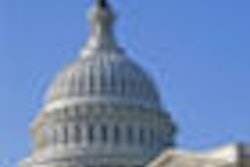
United Concordia has rolled out a new policy that will hold U.S. dentists to a maximum allowable charge for services that are not covered by the insurer.
“Many cosmetic services and some preventive and restorative care may no longer be offered.”
— Christopher Smiley, D.D.S., ADA
Council on Dental Benefit Programs
The company is amending its participating provider agreements to "cap" charges for "nonscheduled" services or services in excess of the annual program maximum. Additionally, the changes allow United Concordia to provide other entities it may enter into strategic partnerships with access to its network of dentists.
United Concordia began sending out the contract amendment in February of this year and completed its mailings in June. The policy will take effect throughout the U.S. on November 1, 2009.
The policy is being implemented to "keep pace with the competition," Karen Whitesel, corporate vice president of provider relations for United Concordia, told DrBicuspid.com.
All the major commercial carriers already have this language in their provider agreements, she noted. (Delta Dental recently announced that it will soon begin capping fees charged for uncovered procedures.)
Christopher Smiley, D.D.S., who serves on the ADA Council on Dental Benefit Programs but is not an ADA spokesperson, agreed that market pressure or gaining a marketing advantage may be prompting United Concordia to implement this policy.
"They can present this policy to a plan purchaser as an 'unscheduled' benefit to control costs for their insured individuals, even though the plan isn't involved in covering these specific services," Dr. Smiley said.
Pros and cons
The new policy has several advantages for dentists, according to Whitesel. Groups who partner with United Concordia will drive new patients into their practice. In addition, patients will be less likely to delay services in fear of going over their program maximum, and they will be able to receive services that they may not have otherwise been able to afford, he noted.
As for patients, they will benefit from the opportunity to limit out-of-pocket expenses while following their dentist's recommendations, he added.
Dr. Smiley, however, noted that patients who have benefits through United Concordia may find that their dentist is less willing to provide care for nonscheduled services impacted by this policy.
"Many cosmetic services and some preventive and restorative care may no longer be offered to the patient if the dictated allowed fee is below what their dentist finds fair," Dr. Smiley said. "In some markets, providers may elect to no longer participate with United Concordia. The patient in either case could face decreased access to desired care."
Some of the procedures likely to be affected by this policy include oral hygiene instruction, bleaching, occlusal guards, and the fabrication of athletic mouthguards, according to Whitesel.
Cosmetic care such as veneers, bonding, and bleaching; restorative services such as implant care or resin restorations on posterior teeth; and preventive services such as dental sealants could also be impacted, according to Dr. Smiley.
Typically, these services are offered to patients through consultation with their dentist. Patients are informed of the benefit of such care and may elect to have this service, knowing that they will have to pay out of pocket for their elected care.
"With a 'nonscheduled services' policy enforced through a provider contract, the participating dentist will now be obligated to bill only for what United Concordia deems appropriate," Dr. Smiley said.
And how will United Concordia decide what qualifies as "appropriate" payment?
The company will use "submitted charge data" to determine the maximum allowable fee for specific procedures, Whitesel explained.
Dr. Smiley argued that such submissions would be very limited and that any fee schedule generated from such data may not be statistically valid and could be geographically biased.
"Other options such as fee surveys or claims date pooled from multiple providers may allow for development of a more accurate fee schedule," he said. "However, so few plans collect data on these impacted services that this may not be an option."
Copyright © 2009 DrBicuspid.com



















